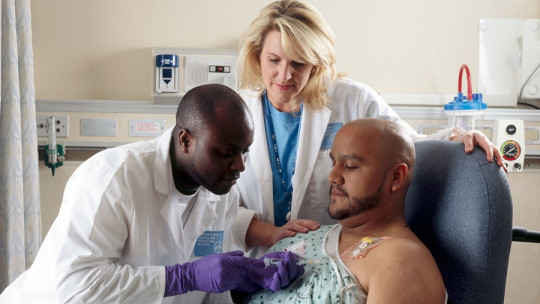
Facing a disease as complicated as cancer can be very painful when you do not have adequate emotional and general self-care. From the moment of diagnosis, these intrusive diseases seem to take up almost all of the space and thoughts of those who suffer from them. Therefore, it is important to resort to psychological and therapeutic help to promote self-care and have a good relationship with our emotions and thoughts.
Psycho-oncology and palliative care emerge as mechanisms for better coping with this type of illness. Neglecting emotions and having a bad relationship with our mind throughout these processes can make them even more painful. Knowing how to ask for help and turn to the people around us is essential for good mental, emotional and physical health. In this article, we are going to discuss some of the strategies that from psycho-oncology and palliative care have been developed to promote better care for those facing this disease.
What is psycho-oncology?
Psycho-oncology, a specialized branch of Psychology, focuses on understanding and addressing the emotional and psychological aspects associated with cancer and its treatment. Patients and their families often experience an emotional roller coaster, facing fears, anxieties and changes in perception of life following the diagnosis. Uncertainty about the future and the challenges of treatment can cause significant stress.
In this context, psycho-oncology becomes an invaluable resource. Professionals in this discipline work to provide emotional support, helping patients deal with diagnosis, treatment and quality of life changes. Therapies such as cognitive-behavioral are used to address negative thought patterns, and supportive therapy focuses on offering a safe space to express emotions.
It is crucial to understand that psycho-oncology not only addresses patients, but also involves families. The emotional impact of cancer extends to loved ones, and providing them with tools to understand and manage these emotions contributes to a comprehensively supportive environment.
Psychoongology Strategies
Within the field of psycho-oncology, there are different strategies designed to address the complex psychological aspects associated with cancer. One of the main tools is cognitive behavioral therapy, which focuses on identifying and changing negative thought patterns. This therapy helps patients manage fear and anxiety related to cancer, promoting a more positive mindset.
Supportive therapy is another fundamental strategy, providing a safe space where patients can express their emotions without judgment. Open and compassionate dialogue with a mental health professional allows patients to process their feelings, reducing emotional isolation.
In addition, interventions based on mindfulness and relaxation techniques have been shown to be effective in reducing stress. These strategies teach patients to be present in the current moment and face challenges in a more balanced way. It is essential to highlight that these strategies are not exclusive to the active treatment stage; They are also vital in the survival phase and, in some cases, in the grieving process. Psycho-oncology recognizes the need to adapt interventions to the different stages of the cancer patient’s journey.
Palliative care and improvement of quality of life
When we delve into the realm of palliative care, it emerges as a beacon of compassion and improved quality of life for those facing serious illnesses, including cancer. This care focuses on relieving suffering and symptoms, not only physical, but also psychological and spiritual, recognizing the totality of the human experience.
Palliative care is not simply an alternative to curative treatment, but is integrated in a complementary way to offer a holistic approach. An interdisciplinary team, including doctors, nurses, social workers and mental health professionals, works together to provide comprehensive support. This approach addresses not only the management of pain and physical symptoms, but also the emotional well-being of the patient and her family. Open and honest communication becomes a fundamental pillar, allowing the patient’s goals and desires to guide the care plan. In essence, palliative care is not limited to the quantity of life, but rather focuses on the quality of life.
Integration of Psychology in palliative care
The effective integration of psycho-oncology into the palliative care framework is a crucial advance in addressing the complexity of the emotional needs of patients in advanced stages of diseases such as cancer. By considering psychological well-being as an integral component of care, the interconnection between physical and emotional health is recognized. Psycho-oncology professionals play an essential role in working closely with the palliative care team. They offer emotional support to both the patient and their families, helping them cope with the inevitable emotional burden that comes with facing the finitude of life.
Specific psycho-oncology interventions, such as anticipatory grief therapy and advanced care planning, allow patients to express their wishes and values, facilitating crucial conversations about quality of life and medical decisions. This integration strengthens patient-centered care, improving the overall experience of those facing the end of life. Ultimately, the marriage of psycho-oncology and palliative care offers a comprehensive and compassionate approach to providing comprehensive support to those who need it most.








